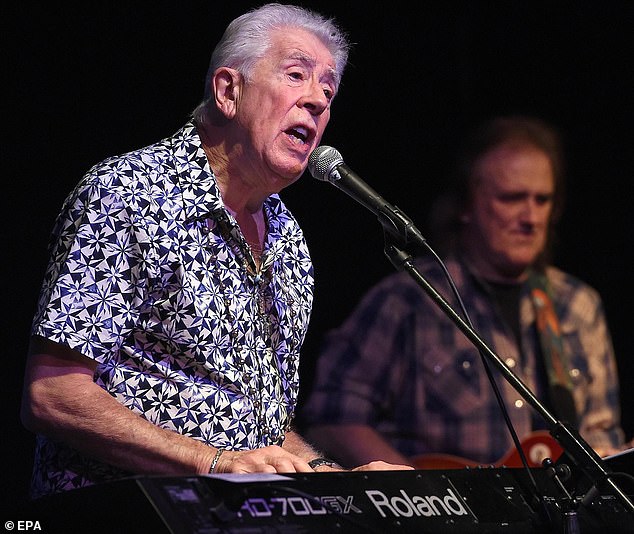The father of British blues John Mayall has died aged 90 after health problems forced him to suspend his touring.
The musician died on Monday at his home in California surrounded by his family, according to a statement on his Instagram page.
The British blues pioneer fronted the Bluesbreakers band that influenced stars such as Eric Clapton and Mick Fleetwood.
He stopped touring in 2021 due to health issues, which his family referred to when they announced his death.
In a statement, they said: ‘It is with great sadness that we announce the news that John Mayall passed away peacefully at his home in California on July 22, 2024, surrounded by his loving family.
‘The health problems that forced John to end his epic touring career finally brought peace to one of the world’s greatest road warriors.
‘John Mayall gave us 90 years of tireless efforts to educate, inspire and entertain.’
British blues pioneer John Mayall (pictured during a concert in Milan in 2015) has died aged 90
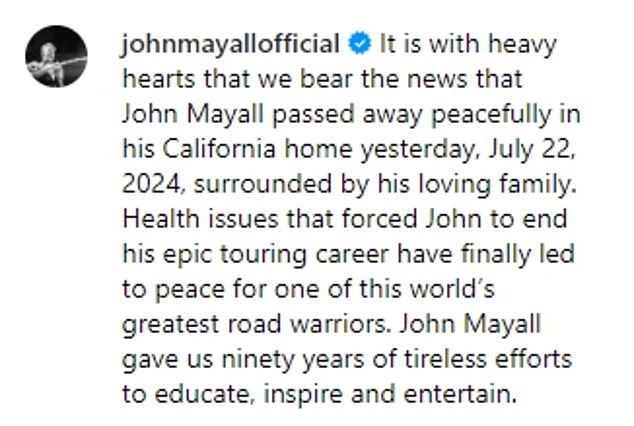
A statement was posted on John Mayall’s official Instagram page today announcing his passing.
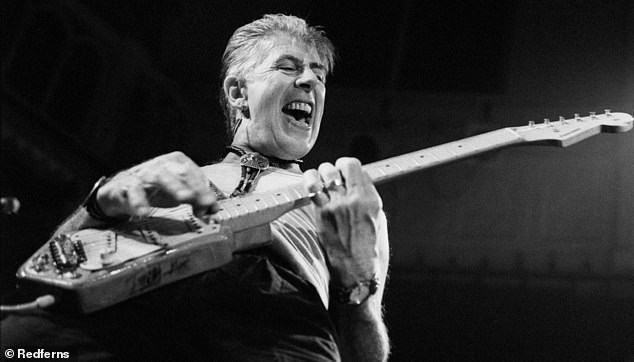
The musician (pictured in 1991) died at his home in California on Monday, surrounded by his family, according to a statement on his Instagram page.
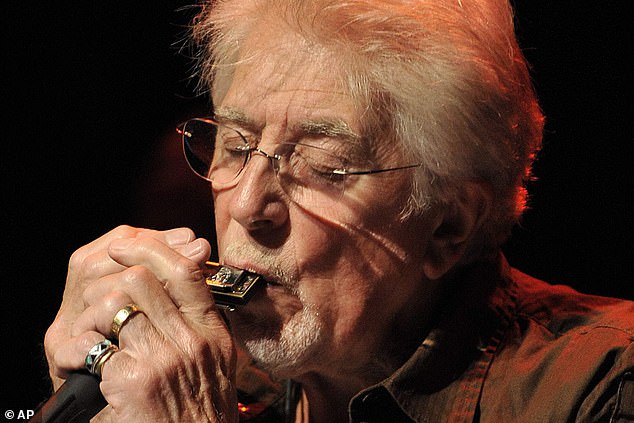
Mayall is credited with helping to spark a blues revival in the late 1960s and has been described as the “father of the British blues”. He is pictured performing on stage at the Miles Davis Hall during the 42nd Montreux Jazz Festival in Montreux, Switzerland.
Mayall, who was born in Macclesfield and grew up in Cheadle, Greater Manchester, formed the Bluesbreakers in the early 1960s.
He is credited with contributing to the blues revival of the late 1960s and has been described as the “father of British blues”.
The Bluesbreakers began playing at the Marquee Club, a small and relatively inexpensive club located in the heart of London’s West End.
In 1964, Mayall booked his first recording date with producer Ian Samwell. The band recorded two tracks: “Crawling Up a Hill” and “Mr James”.
But it was not until April 1965, when former Yardbirds guitarist Eric Clapton replaced Roger Dean, that Mayall’s career really took off.
In 1965, with Eric Clapton as their new guitarist, the Bluesbreakers began to attract considerable attention.
When Clapton went on a trip to Greece that summer, Fleetwood Mac founder Peter Green took his place, while Jack Bruce of the rock band Cream played bass. In November 1965, Clapton returned and Green left.
The Bluesbreakers have been considered a training ground for other important musicians, including John McVie and Peter Green of Fleetwood Mac, Mick Taylor, who played with the Rolling Stones, Harvey Mandel and Larry Taylor of Canned Heat, and Jon Mark and John Almond, who later formed the Mark-Almond Band.
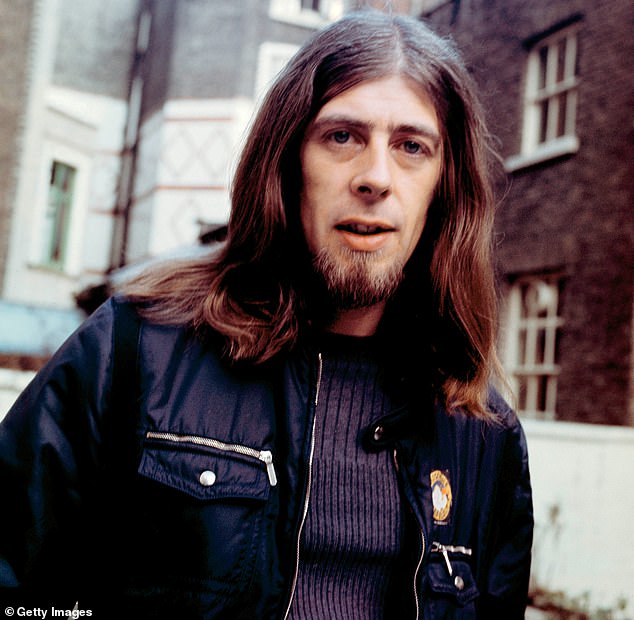
John Mayall (pictured) in London, March 4, 1971
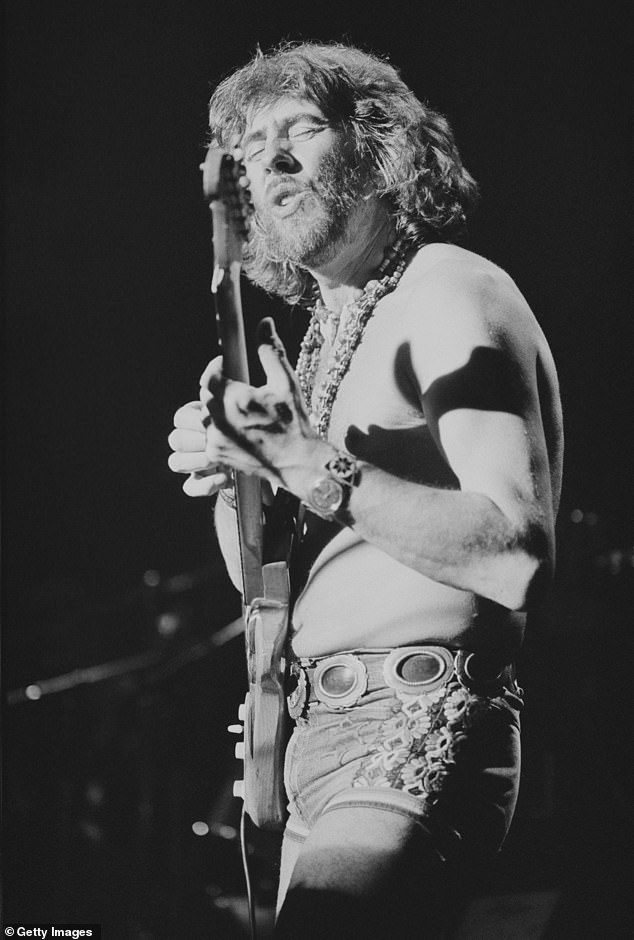
Mayall performing on stage in 1979
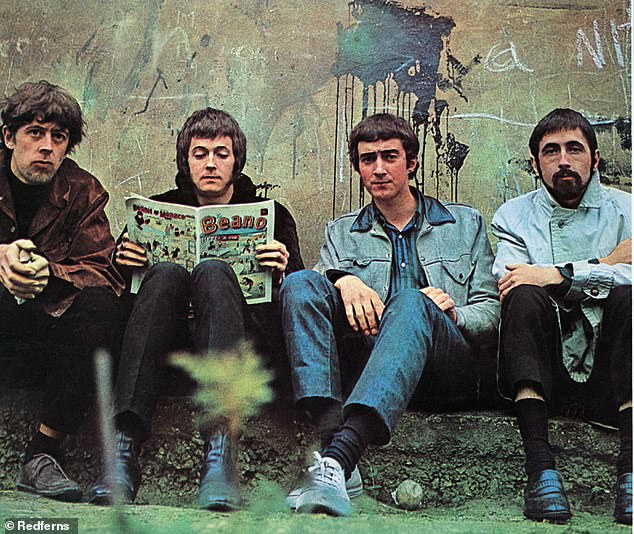
John Mayall’s bluesbreakers: John Mayer, Eric Clapton, John McVie, Hughie Flint
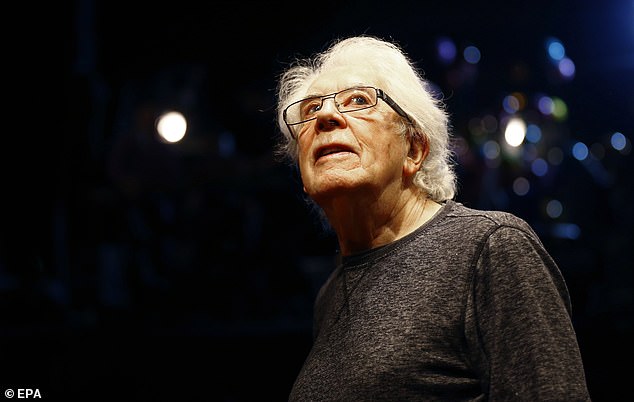
John Mayall poses during an interview in Madrid, Spain on February 13, 2017
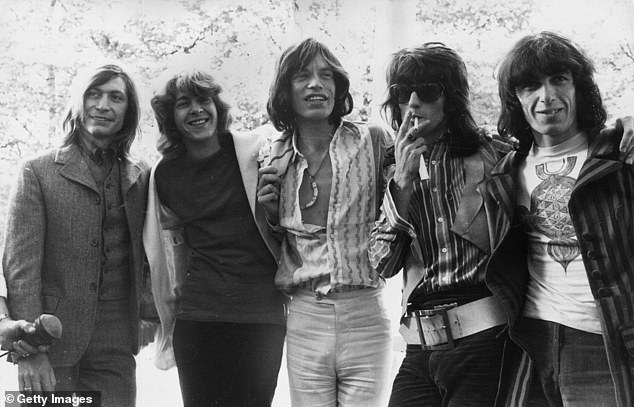
The Bluesbreakers (pictured) in 1969 in Hyde Park, London. From left: Charlie Watts, Mick Taylor, Mick Jagger, Keith Richards and Bill Wyman
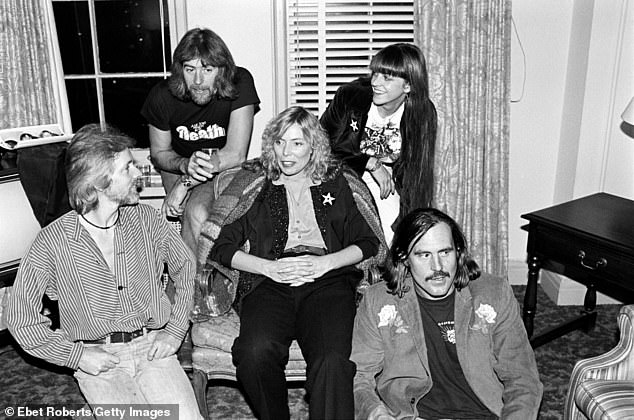
Pictured: Klaus Voormann, John Mayall, Joni Mitchell, Debby Chesher and Commander Cody during the promotion of the book ‘Starart’ which included artwork by them and other musicians.
Mayall protested in interviews that he was not a talent scout but played for the love of the music he had first heard on his father’s 78 rpm records.
Although he admitted in an interview with The Guardian that he had “managed to select some very special people”.
“I’m a band leader and I know what I want to play in a band, who can be good friends of mine,” Mayall said in an interview with Southern Vermont Review. “We’re definitely a family. It’s a small thing, really.”
Although Mayall never came close to matching the fame of some of his illustrious former students, he was still performing in his late 80s.
“I’ve never had a hit record, I’ve never won a Grammy, and Rolling Stone has never done a feature on me,” he said in an interview with the Santa Barbara Independent in 2013. “I’m still an underground artist.”
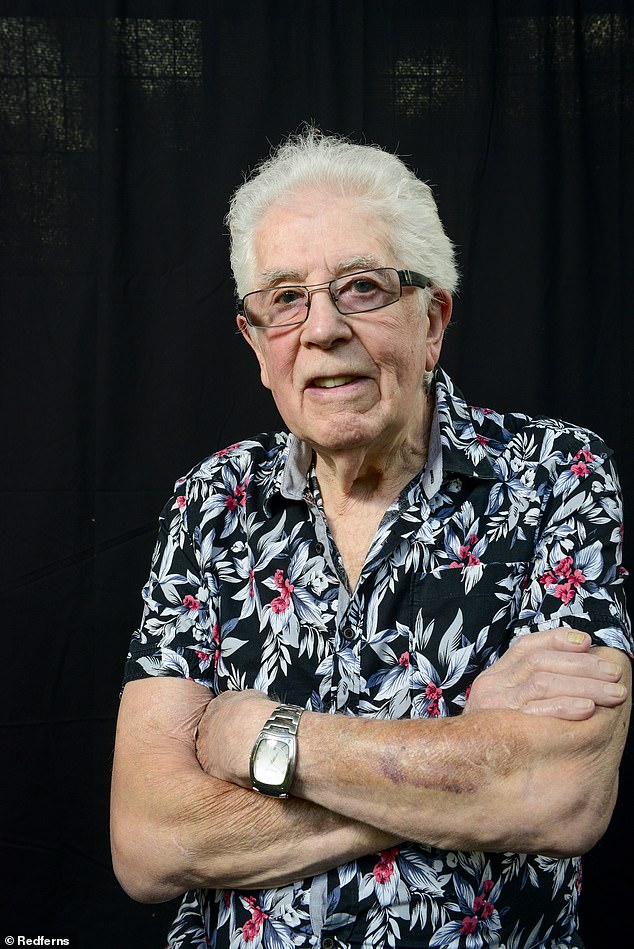
Mayall protested in interviews that he was not a talent scout but played for the love of the music he had first heard on his father’s 78 rpm records. He is pictured at the Vancouver Jazz and Wine Festival on August 27, 2017.
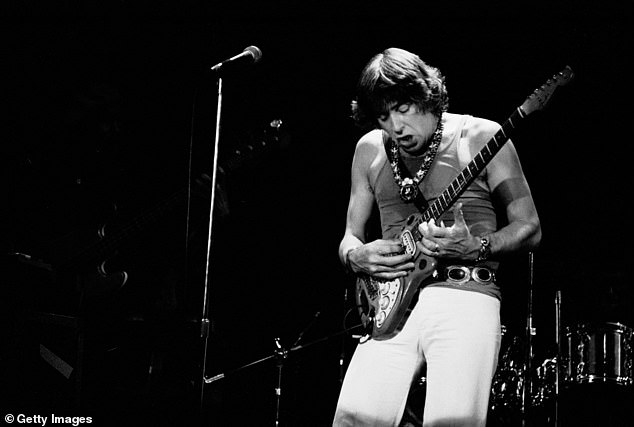
English blues and rock musician John Mayall performing on stage at the Bottom Line nightclub in Greenwich Village in 1979
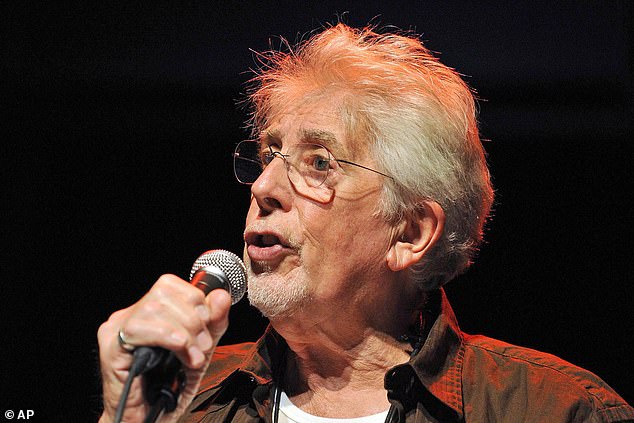
Although Mayall never came close to matching the fame of some of his illustrious former pupils, he was still performing well into his late 80s. He is pictured on stage during the 42nd Montreux Jazz Festival in Montreux.
Mayall received a Grammy nomination for Wake Up Call, which featured guest appearances by Buddy Guy, Mavis Staples, Mick Taylor and Albert Collins. She also received a second nomination in 2022 for her album The Sun Is Shining Down.
He was inducted into the Rock & Roll Hall of Fame in 2024 and his 1966 album Blues Breakers with Eric Clapton is considered one of the greatest British blues albums.
He was appointed OBE (Officer of the Order of the British Empire) in 2005.
Mayall’s father also played guitar and banjo, and his boogie-woogie piano records captivated his teenage son.
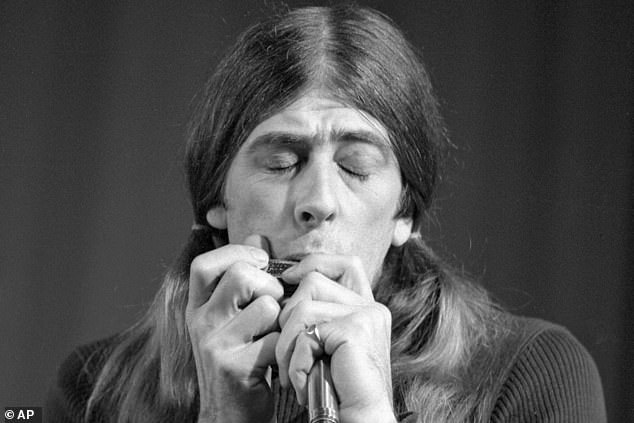
Mayall performing with the Bluesbreakers at the Deutsche Museum in Munich, West Germany, 21 January 1970
Mayall once said: “The only reason I was born in Macclesfield was because my father was a drinker and that was his favourite pub.”
She learned to play the piano one hand at a time (one year with her left, one year with her right) so that she “wouldn’t get tangled up.”
The piano was his main instrument, although he also played guitar and harmonica, as well as singing with a distinctive, tense-sounding voice.
With the sole assistance of drummer Keef Hartley, Mayall played all the other instruments for his 1967 album Blues Alone.
The Bluesbreakers drew on a fluid community of musicians who moved in and out of various bands.
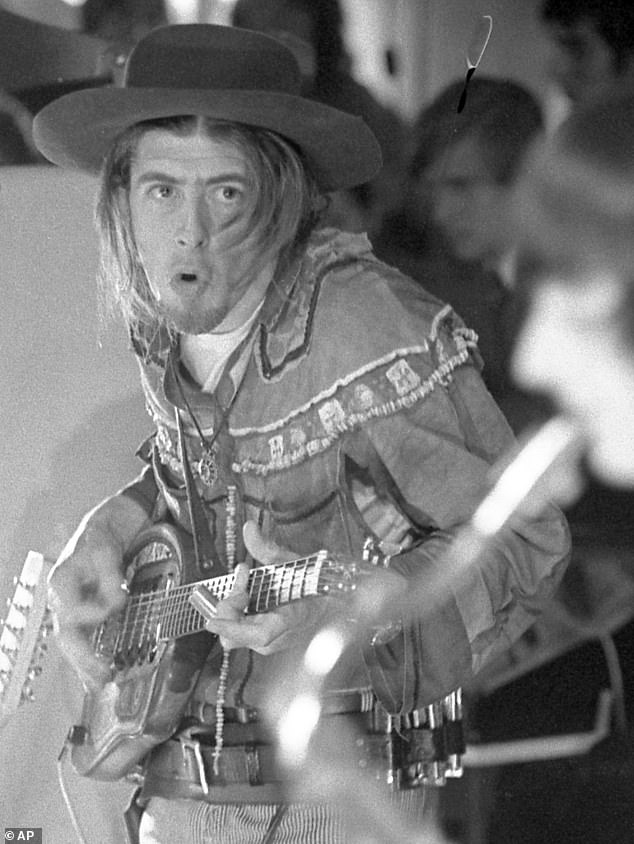
Mayall performing with his band the Bluesbreakers in Munich in 1969. The influential band was a training ground for Eric Clapton, Mick Fleetwood and many other superstars.
Mayall’s 1968 album Blues from Laurel Canyon marked a change of direction and a permanent move to the United States. He disbanded the Bluesbreakers and worked with two guitars and a drum kit.
By the 1970s, Mayall was in a period of personal decline, but was still touring, playing over 100 shows a year.
In 1982, he reformed the Bluesbreakers, recruiting Taylor and McVie, but after two years the personnel changed again.
In 2008, Mayall announced that he was permanently retiring the Bluesbreaker name and in 2013 fronted the John Mayall Band.

